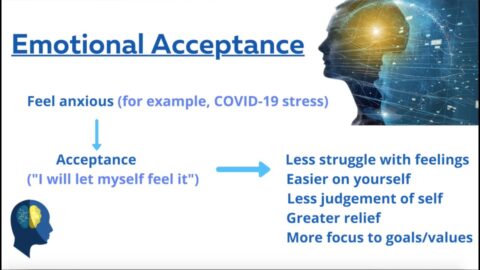With so much mental health information online and on social media, you deserve to be able to find the best! In this Emotional Minutes video, Dr. Matt B talks about how to find the best mental health info online and on social media.
From how to understand what is helpful versus unsubstantiated information, to specific methods to use to recognize good content, this subseries of 5-6 videos goes deep into How to find good mental health information. If you experience depression, anxiety, trauma, loss and grief, or other difficulties, there are ways to recognize whether information online or on social media are actually helpful!
Part 1 covers why this can be important and how to mentally approach mental health info you encounter. I hope it helps!
Hi, I’m Dr Matt B., and these your Emotional Minutes. It’s good to be back with you! I was looking up some mental health content online and found a ton of content on mental health. But how do you know you’re getting good, dependable, and reliable mental health information?
That’s why we’re going to talk about how to recognize information that is good and based on established concepts. This is important because information on the internet can be a mixed bag in the credibility department. I want to give the caveat that some people posting online for mental health are doing so for good reasons. Everybody wants to help; Whether it’s something that they’ve been through before or they’re a mental health clinician or researcher and they want to get some good information out there.
That’s a really noble thing and that’s actually what I like about the mental health field. It’s one of the reasons I went into it in the first place. However, like any field or pursuit, some information is better than others. We will be taking this and the next few episodes to talk about a number of ways that you can recognize good, dependable, and helpful mental health information online.
The first thing I wanted to talk about is why this matters. Sometimes, people feel that if they experience something difficult, that they are able to understand it. What can be hard to understand is that we, as humans, are actually biased and limited in our perspective. Because of this, some things that might be true for us may not be the case or may not be helpful for other individuals.
One good example of us being really limited in our perspective is the classic example of the world being round versus being flat. For centuries, we thought the world was flat because of course that made sense. It was understood that when you looked on the horizon you could only see flatness. Based on that, you would assume the world is flat, right? And, at some point, you just fall off the edge.
However, through deep understanding and some more evidence, we found that flat earth was not the case. In the same way, things that we assume to be true aren’t always necessarily true. In a similar fashion, thoughts on why life happens the way it does or ways we make sense of that can be similarly flawed.
This is actually a pretty cool concept, right? It sets us apart from other animals. Sometimes those thoughts can be accurate. But sometimes they may not actually be the case. We may experience something and draw a conclusion about it that might not be accurate or might be accurate only in certain conditions. Personal experience is really important and valid, but it doesn’t exempt us from bias.
There’s a lot of rigorous research on mental health concepts. This includes experiences, phenomenon, and disorders. These studies are done by researchers who, like everyone else, have a lot of thoughts. They then go and test those thoughts in a structured way and through repeated testing in a formulated process that helps us understand whether something is accurate.
This kind of understanding of if you’re getting good and reliable mental health information centers around if there is there research behind it. Have people really studied this? That brings us to our first question, and our first strategy on how to understand whether or not the information you’re finding online on mental health is actually reliable.
The first question you should ask when you read something on mental health is where the information comes from. Really getting in that habit of always forming in your head a concept of “okay. They just said something about mental health. Where is that information coming from?”.
This is because any of us can say that something is the case about the world, but has it really been looked at and established? And again, using this anytime somebody is saying or making claims about how mental health concepts.
In the coming episodes, we will cover tools and strategies on how to understand whether you are getting good information. A lot of it centers around that first question: Where is this information coming from? And how do I know whether or not it’s good or reliable information? Or whether or not it’s going to be information that’s helpful for you to understand experiences and helpful actions to take.
I hope today’s topic was informative. I’m Dr Matt B., and these are your Emotional Minutes. We’ll see you next time.



